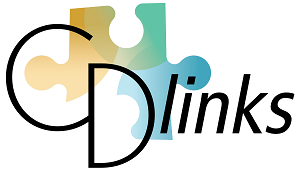Work Package 5
Future policies and related implementation challenges and opportunities
Implementing policy, particularly in the areas of climate and development, generally occurs in an environment rife with pre-existing legal, institutional, behavioural and other “real-world” distortions. These conditions can have a significant impact on the expected policy outcomes compared to ideal conditions under which policies are commonly assessed (e.g., Goulder et al., 1999). Implementation challenges are relevant at the national as well as international scale, or may be inter-related, for example in the case that the (short-term) interests of countries and actors may discourage them from contributing to the achievement of common global solutions to address climate change.
This work package aims at achieving a policy- and realism-oriented synthesis of the model analyses performed in WPs 2, 3 and 4 in light of the main empirical findings emerging from WP1. It will look critically at how to implement the preferred strategies, investments and actions that would be in accordance with the multiple policy objectives assessed throughout the project. With the aid of properly designed modelling tools, complemented as appropriate by the empirical evidence developed in CD-LINKS, this work package will use a number of global and national case-studies to explore key implementation issues.
Key objectives of the work package relate to (i) the question of how to mobilise the necessary financial flows, (ii) international trade and cross-border effects, with a particular focus on the risk of industrial relocation of energy-intensive industries, (iii) the risk of vested interests across G20 countries due to “lock-in” in fossil fuel and capital-intensive infrastructure, and (iv) other barriers to implementation that may be identified as potential bottle-necks in the empirical and modelling analysis elsewhere in the project.
WP5 will be sub-divided into four tasks. From a methodological perspective, these will encompass two main streams of work: explicit modelling of different policy designs and their implications for implementation barriers and synthesis of the low-carbon development pathways generated in WPs 2, 3 and 4, with an eye toward policy implementation barriers and opportunities. A concrete outcome of this exercise will be the creation of an interactive global map with a focus on G20 countries outlining hot spots, criticalities, challenges, policy priorities, and non-aligned incentives. The map will be discussed and presented to key stakeholders and negotiators as an additional way to convey the main findings of the project.
Key research questions:
- How large are the challenges of overcoming critical implementation barriers related to, for example, mobilising the necessary financial flows, international trade and cross-border effects, and carbon lock-in, as indicated by the model-derived pathways analyses?
- Are there implementation issues that are common to broad groups of countries?
